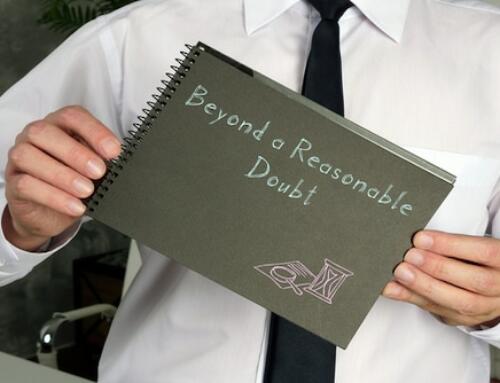As a criminal defense lawyer, located in Philadelphia, Pennsylvania, I am often asked about drug conspiracy and its accompanying charges. In Pennsylvania, anyone connected with a drug operation risks being charged with drug conspiracy. You can be found guilty of conspiracy if you take part in a drug crime that is planned or committed by your friends and/or family. In this article, I will define drug conspiracy and discuss possible defenses to this potential life-altering charge in Pennsylvania.
What is Drug Conspiracy in Pennsylvania?
A drug conspiracy is an agreement between two or more people to commit a drug crime. A federal drug conspiracy is simply an agreement to violate the federal drug laws. In establishing a drug conspiracy, the government only has to prove two basic elements. First, the government must prove that there was an agreement between two or more people to violate a federal drug law. Second, it must be shown that each alleged conspirator knew of the unlawful agreement and joined in it. That is all the government needs to show to establish a federal drug conspiracy. It is obviously a very broad law, potentially covering many different types of conduct and individuals.
The Commonwealth of Pennsylvania defines drug conspiracy as
(a) Definition of conspiracy.–A person is guilty of conspiracy with another person or persons to commit a crime if with the intent of promoting or facilitating its commission he:
(1) agrees with such other person or persons that they or one or more of them will engage in conduct which constitutes such crime or an attempt or solicitation to commit such crime; or
(2) agrees to aid such other person or persons in the planning or commission of such crime or of an attempt or solicitation to commit such crime.
(b) Scope of conspiratorial relationship.–If a person guilty of conspiracy, as defined by subsection (a) of this section, knows that a person with whom he conspires to commit a crime has conspired with another person or persons to commit the same crime, he is guilty of conspiring with such other person or persons, to commit such crime whether or not he knows their identity.
(c) Conspiracy with multiple criminal objectives.–If a person conspires to commit a number of crimes, he is guilty of only one conspiracy so long as such multiple crimes are the object of the same agreement or continuous conspiratorial relationship.
What are Defense Options for Drug Conspiracy Charges in Pennsylvania?
Because proving intent is key to convicting you of drug conspiracy, it can difficult for the government to prove your guilt, however, because of its ambiguity, it can be equally difficult for you to prove your innocence. Many people charged with federal drug conspiracies are concerned with predicting the outcome of their cases. They often wonder about the likelihood of a conviction and the length of a potential sentence. The truth is if you are charged with a drug conspiracy, your case can be very serious and complicated. A lot may depend on the drug quantity, the testimony of witnesses and cooperation with the prosecution.
Prosecutors often like conspiracy charges because they do not need to prove drug crimes were actually committed, only that the alleged offenders had planned to commit the drug crimes. If one of the alleged offenders involved was arrested and charged with a separate drug offense such as possession, then this only helps their cases.
However, there are ways for alleged offenders to challenge these allegations, and some successful defenses include but are not limited to:
Pre-Trail motion. A critical part of successfully defending any federal drug conspiracy charge is an effective pretrial motion strategy. Motions addressing insufficiency of the Indictment, the suppression of evidence based on illegal search(es), as well motions to address the failure to preserve exculpatory evidence have proven effective in obtaining relief for an accused client. Further, properly determining the anticipated sentencing guideline range based on an individual’s conduct within the scope of the conspiracy is critical. Through diligent efforts in evaluating the case, motion practice, and consultation, the best course of action is discussed and determined by thorough discussion between the attorney and client.
Duress. Duress is the pressure that one person or entity puts on another person to do something that he or she would normally not do. Using force, false imprisonment, threats or psychological pressure to make someone do something he or she normally would not do is illegal and can negate any incidents that result from duress.
Entrapment. The entrapment defense depends on your attorney demonstrating that you were not predisposed to the crime – you had no history or interest in the drug business. If, for example, you turned down an inducement to buy or sell drugs or otherwise join a drug conspiracy, and undercover federal agents came back to try you again, whereupon you acquiesced, you would be in a good position to use the entrapment defense.
Illegal search and seizure. The Fourth Amendment to the U.S. Constitution protects personal privacy, and every citizen’s right to be free from unreasonable government intrusion into their persons, homes, businesses, and property — whether through police stops of citizens on the street, arrests, or searches of homes and businesses.
No knowledge of the conspiracy. In order to make a person liable for criminal conspiracy as a co-conspirator, he/she must have knowledge of the existence of the conspiracy and knowledge of the illegal object of the conspiracy. However, a person having no knowledge of a conspiracy cannot be considered a conspirator. In other words, a person’s connection with a conspiracy cannot be legally established without his/her knowledge or concurrence.
Abandonment and withdrawal from conspiracy. Abandonment and withdrawal is an affirmative criminal defense that arises when a defendant asserts that he or she never completed, or was not involved in, a criminal act because he or she abandoned or withdrew from the act prior to it happening. Abandonment and withdrawal is an affirmative defense, which means that the burden is on the defendant to show that he or she met all of the requirements for a successful withdrawal from the crime.
Overt act. Federal drug conspiracy charge statutes require the government to prove that the defendant engaged in an “overt act” to further the conspiracy, but a drug conspiracy charge merely requires the government to prove that the defendant joined the conspiracy. If the defendant did nothing to further the conspiracy, however, ambiguity about whether the defendant actually joined the conspiracy can provide the defendant with a defense.
Unreliable witnesses. For defendants, the key to a solid defense is often dependant on successfully attacking the government’s witnesses. Much of the government’s circumstantial evidence is typically provided by unreliable and biased witnesses with something to gain in exchange for their testimony.
It is also common for government witnesses to be alleged co-conspirators, alleged customers, or jailhouse informants who have been given deals in the form of reduced charges and/or jail time. Generally, it is necessary to attack these witnesses by determining the answers to the following questions:
- What is the bias of the witness?
- Does the witness have a criminal record?
- Has the witness been offered a deal of any kind?
- What does the witness stand to gain from offering their testimony in this matter?
- Was the witness actually there, at the scene of the alleged crime?
Having an experienced criminal defense attorney by your side in these types of cases is crucial. Having the experience and ability to effectively discredit a government witness at trial is the key to having a better chance at winning many types of drug conspiracy cases. I use my trial experience and knowledge of the government’s tactics to help defend my clients every day in the state of Pennsylvania. If you are facing criminal charges, please contact the Fishman Firm. I have the experience to mount a winning strategy.






